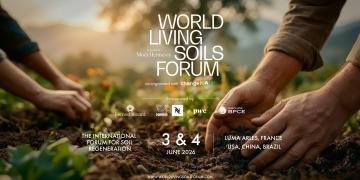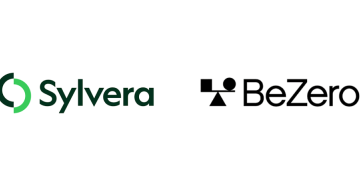Imperative secures funding for first phase of its project to restore 100,000ha of land in South Africa
- Imperative has taken a Final Investment Decision on Phase 1 of its large-scale ecosystem restoration project in South Africa
- Project Phase 1, funded by Mirova, GenZero and Rubicon Carbon LLC, targets to deliver the first 10,000 hectares of restoration activities.
- At full scale, the project aims to restore 100,000 hectares of land through active replanting of native thicket across a vast area in the Eastern and Western Capes of South Africa.
- The project is being executed under the relatively new Verra VM0047 methodology and, at full scale, is expected to sequester more than 30 million tons of CO2 equivalent1.
The Project Phase 1, which targets to replant Portulacaria afra thicket across 10,000 hectares, is being funded under a syndicated senior secured stream agreement, led by Mirova, an affiliate of Natixis Investment Managers dedicated to sustainable investing, (“Mirova”), along with GenZero, a Temasek-owned decarbonisation investment platform company (“GenZero”) and Rubicon Carbon LLC (“Rubicon Carbon”) (together, the “Project Funders”). By providing catalytic funding for Phase 1, the Project Funders aim to support the de-risking of the full-scale 100,000-hectare project. Imperative has established and locally staffed a subsidiary for the project with local leadership with multi-decade major projects experience and has also partnered with NatCarbon Africa, a South African restoration specialist with deep local conservation and restoration expertise.
Designed for positive environmental & social impact
The Project has been designed to restore the natural habitat, enhance local biodiversity, and sequester a substantial amount of carbon dioxide from the atmosphere, contributing significantly to global carbon reduction and removal efforts. Portulacaria afra, commonly known as spekboom, is a native succulent plant prevalent in the subtropical thicket biome in South Africa. Resilient to semi-arid environments, it acts as an “ecosystem engineer” to help restore the functionality and biodiversity of its habitat. The Project aims to bring a significant amount of foreign direct investment into South Africa, to create training and employment opportunities in an area of South Africa with some of the highest unemployment rates in the country, and to return benefits to local communities and local conservation initiatives. At full scale, the project is estimated to remove over 30 million tons of carbon dioxide equivalent over its life1. By focusing on native species, the project intends to facilitate the restoration of ecological balance and provide a sustainable model for environmental recovery and conservation.
Innovative Project Development Approach
Imperative is bringing a major projects approach to the hands-on, boots-on-the-ground development of these projects, introducing sophisticated project planning, execution and physical asset management capabilities from adjacent industries. The Project leverages a proprietary technology stack, spanning advanced project planning and management technologies, a proprietary array of in-field and remote sensing data collection sources and major-projects grade activity coding to give best-in-class, actionable transparency on project execution and asset performance.
The Project not only marks a significant step in Imperative’s commitment to deliver on large-scale, high-quality emerging market projects, but also sets a new benchmark for ecological restoration and carbon credit removals project delivery on a global scale.
The quality of the Project is supported by dedicated and experienced Project Funders, who are well regarded in the Nature-Based Solutions space.
This is the first major project from Imperative’s pipeline to reach final investment decision. We aspire, with this project, to showcase how large-scale native species ARR can be implemented with the same rigor, discipline and predictability as large-scale projects in other, more mature capital projects sectors. We are grateful to have the support of such a high-quality club of funders and we look forward to demonstrating delivery and large-scale positive impact on the ground.
We are happy to support Imperative’s Project through two of our strategies dedicated to environmental assets. By supporting innovative, quality-driven, high-integrity projects that provide solutions for the regeneration of highly degraded ecosystems, private and corporate investors can contribute to the transition towards a Net Zero and nature-positive economy, which requires huge amounts of capital, especially in emerging markets.
The work that Imperative has set out to do is important as a significant proportion of South Africa’s lands are already degraded. This Project aims to incorporate nature into economic and financial planning by planting resilient native plants such as spekboom while unlocking the benefits of carbon finance to enhance the livelihoods of local communities supporting restoration activities on-the-ground.
We’re pleased to continue our partnership with Imperative with the sanctioning of this landmark project. This carbon removal project will perform important ecological services to a heavily degraded biome while also supporting communities within the Eastern Cape for years to come. We look forward to making these credits available to Rubicon Carbon’s clients through our platform.
Carbon removal credits from the project, which will be Verra ARR verified carbon units (VCUs), are in demand in the international voluntary carbon market but can also be delivered into the domestic South African carbon tax scheme, providing interesting optionality for the Project and the Project Funders.




